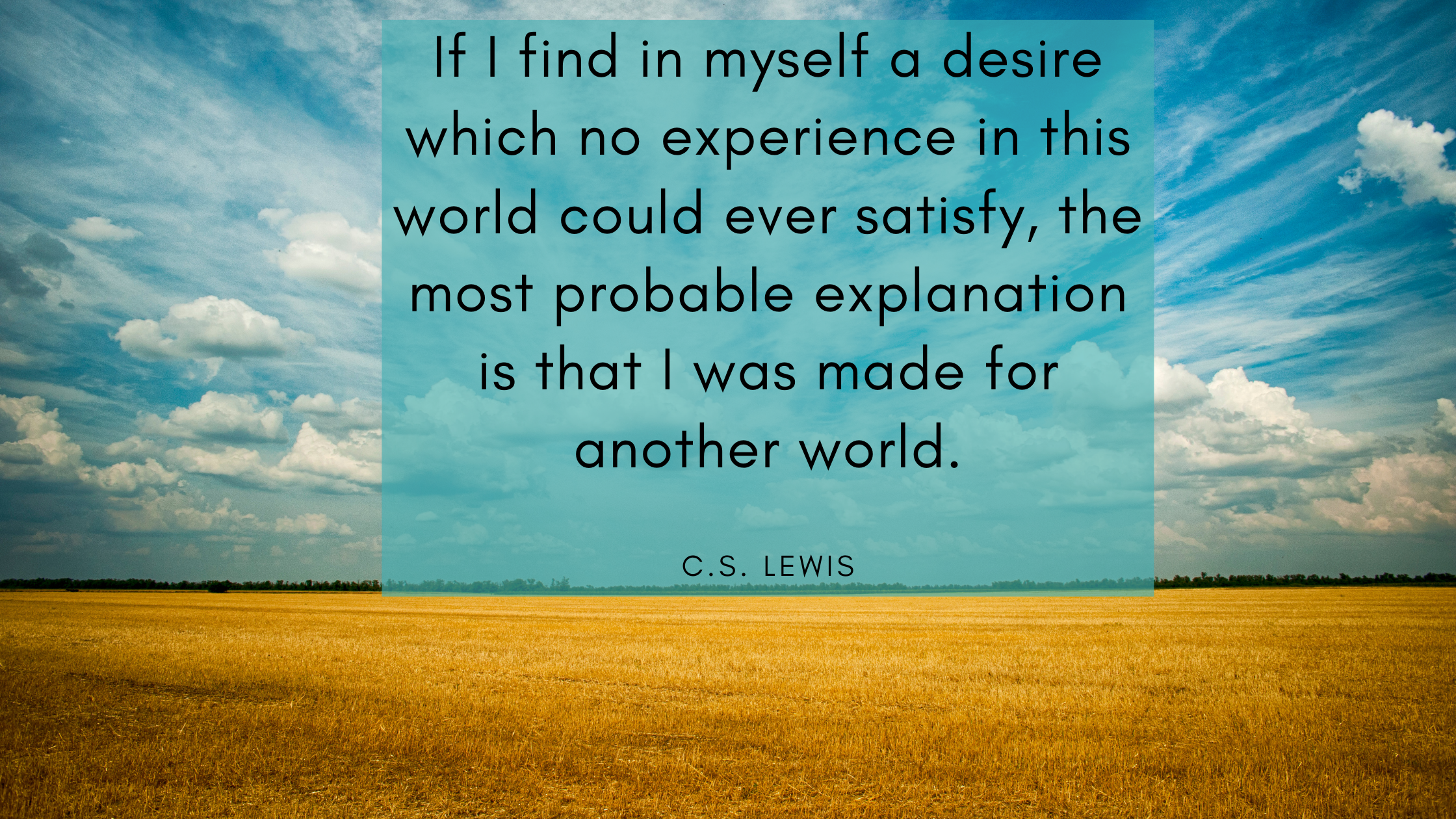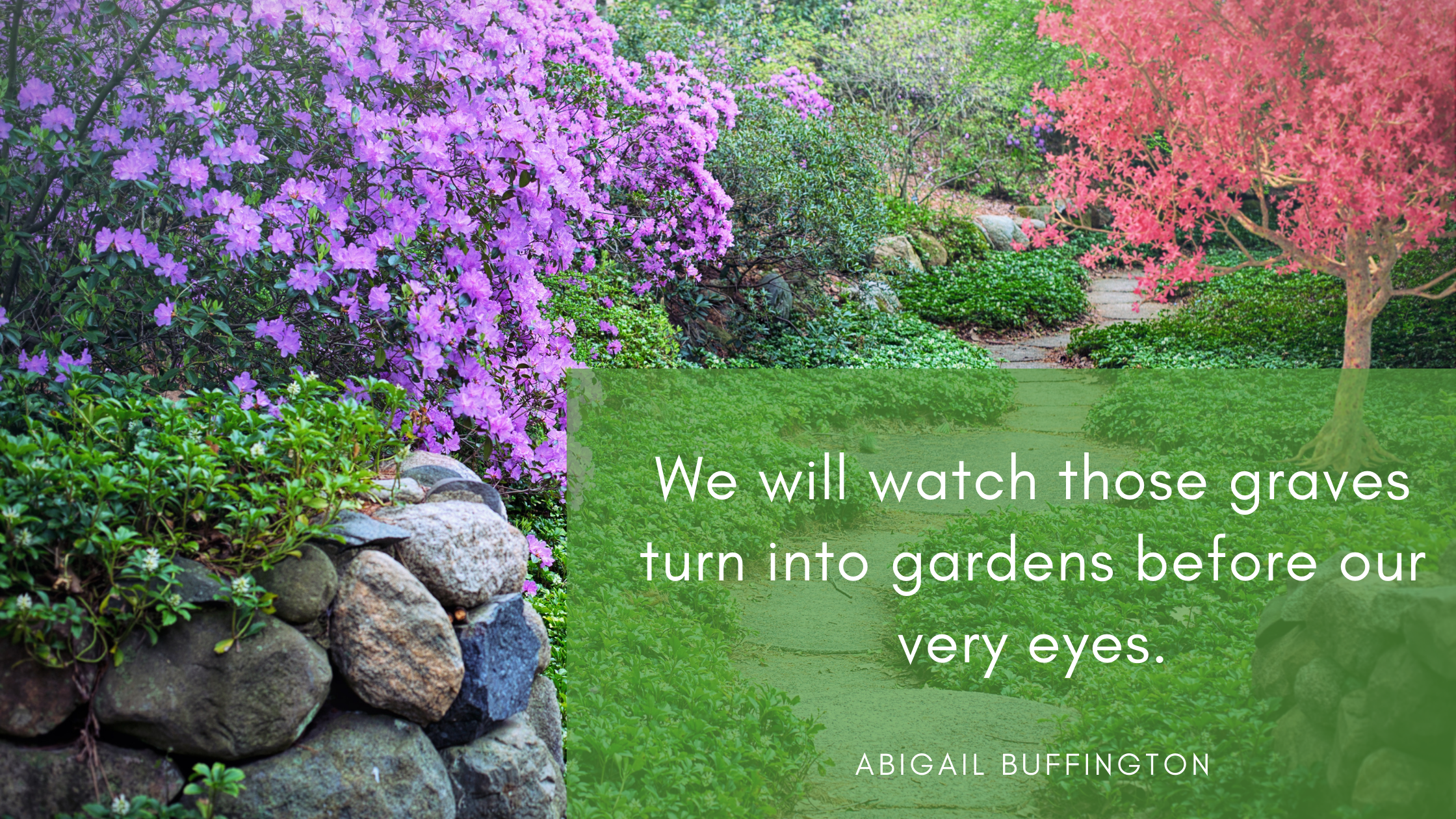The Meaning of Lent
Several weeks ago, I attended the funeral of my boyfriend’s grandfather, a dearly beloved old man. On the back of the bulletin, his wife chose to inscribe one of their favorite quotes, which she thought fitting:
“If I find in myself a desire which no experience in this world could ever satisfy, the most probable explanation is that I was made for another world.” - C.S. Lewis

When I noticed the quote, I stared at it for a whole minute in surprise. For several years, since I first read it, this has been one of my favorite lines, and it echoes in my head quite often. This spring, more often than usual.
A Spring That Doesn't Measure Up
If the beginning of spring is usually associated with new birth, new life, and new hope, then at least for me, so far this spring has not measured up to its meaning.
To be honest, the past few weeks have been riddled with unexpected hardship and loss. Everywhere I look into the lives of others, I feel I am staring into the reality of sin and its wage.
In the past month, four of my friends' grandparents have passed away, and some of the members of my extended family are also coming to their turns to leave this world behind.
A true war has begun.
Money is getting tighter.
Conflict seems prevalent.

On Ash Wednesday, the words “you are dust, and to dust you will return”, resonated a little more heavily than usual. This spring, the world feels a little dusty.
When Spring = Lent
But maybe, this dustiness is not so contrary to the calendar season after all, if we look a little deeper.
Our modern word “spring” comes from the proto-German word “sprengan” meaning the time when plants spring up from their state of dormancy in the winter, and bloom. But before the 14th century, the word for this season was actually just called “Lent”.
Now, we associate the word Lent only with its ecclesiastical meaning, however, it actually used to mean the time of year we now call early spring.

A Difficult Time
As my mom acknowledged in her recent article, the liturgical season of Lent is not known as a joyful, merry season for celebration. In fact, for Jesus, after whom Lent is modeled, it was a very difficult time. He spent the 40 days in the desert, fasting, praying, and finally being tempted by Satan.
During that time, Jesus focused on God, and during Lent, we strive to follow suit. We try to direct our attention to God, instead of worldly objects, either pleasant or painful. This is not easy.

It is often the time when “we find in ourselves a desire which no experience in this world could ever satisfy.”
We miss those we cannot be with.
We want things to be easier than they are.
We helplessly watch our friends and neighbors struggle.
But then, we remember: “We were made for another world.”
The Promise
Soon, we will come to Easter and take our seats at the paschal feast. Soon, God will brush off the dust. Soon, we will be reminded of the resurrection and the life to come.
We will watch these graves turn into gardens before our very eyes. We will watch the sea give up its dead. We will no longer mourn but celebrate.

Lent is the labor pain before the new hope, and the new birth. Without the ache of Lent we call “spring,” the promises of joy, life, and birth that Easter represents would be dulled.
For what would the promise of new life mean if we had no death to weep for?
Have you ever had the experience where you desired something the world could not satisfy? What do you think about during Lent? Let me know in the comments below.
You May Also Like:
